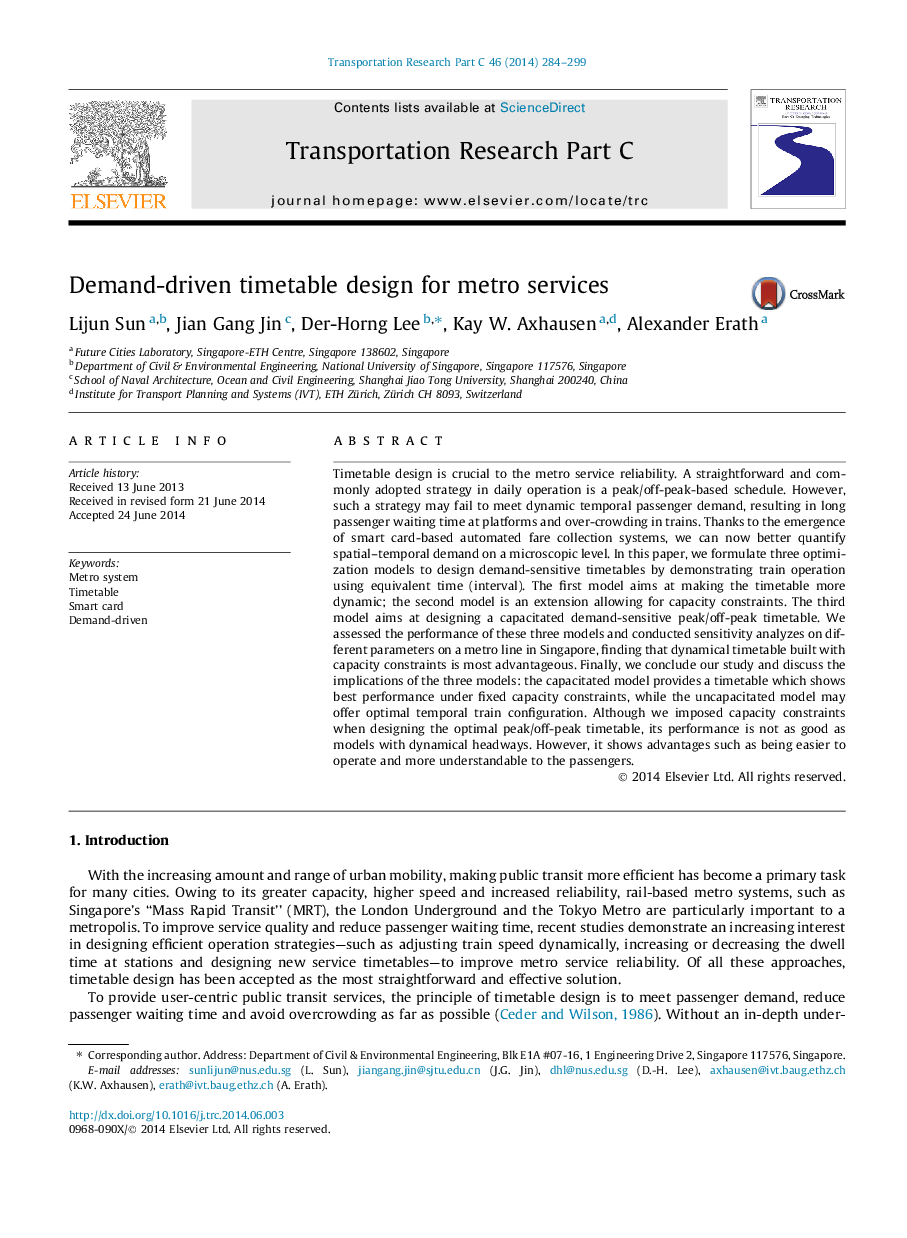| Article ID | Journal | Published Year | Pages | File Type |
|---|---|---|---|---|
| 6937143 | Transportation Research Part C: Emerging Technologies | 2014 | 16 Pages |
Abstract
Timetable design is crucial to the metro service reliability. A straightforward and commonly adopted strategy in daily operation is a peak/off-peak-based schedule. However, such a strategy may fail to meet dynamic temporal passenger demand, resulting in long passenger waiting time at platforms and over-crowding in trains. Thanks to the emergence of smart card-based automated fare collection systems, we can now better quantify spatial-temporal demand on a microscopic level. In this paper, we formulate three optimization models to design demand-sensitive timetables by demonstrating train operation using equivalent time (interval). The first model aims at making the timetable more dynamic; the second model is an extension allowing for capacity constraints. The third model aims at designing a capacitated demand-sensitive peak/off-peak timetable. We assessed the performance of these three models and conducted sensitivity analyzes on different parameters on a metro line in Singapore, finding that dynamical timetable built with capacity constraints is most advantageous. Finally, we conclude our study and discuss the implications of the three models: the capacitated model provides a timetable which shows best performance under fixed capacity constraints, while the uncapacitated model may offer optimal temporal train configuration. Although we imposed capacity constraints when designing the optimal peak/off-peak timetable, its performance is not as good as models with dynamical headways. However, it shows advantages such as being easier to operate and more understandable to the passengers.
Related Topics
Physical Sciences and Engineering
Computer Science
Computer Science Applications
Authors
Lijun Sun, Jian Gang Jin, Der-Horng Lee, Kay W. Axhausen, Alexander Erath,
